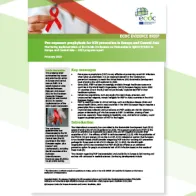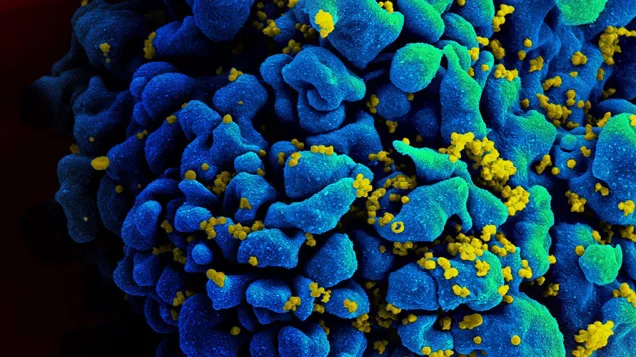Pre-exposure prophylaxis for HIV prevention – priorities for action in the European region
The evidence brief is largely based on data collected between February and March 2022 by ECDC, to monitor the implementation of the 2004 Dublin Declaration.
Andrea Ammon, ECDC Director, declared:
“PrEP is a powerful tool to reduce HIV transmission. Although the provision of PrEP in the European Region has increased since 2016, there is still a great deal of variation among countries in terms of the scale of implementation.”
Although PrEP is reimbursed in 23 out of 55 countries, it is not available everywhere and eligibility is limited, particularly for migrants and people who inject drugs. Fifteen countries reported that generic PrEP was available in healthcare settings, although not fully reimbursed, and 17 countries reported no formal PrEP implementation at all.
To facilitate PrEP implementation across the European Region, ECDC has developed operational guidance on PrEP, along with country case studies on the implementation of PrEP programmes and a standardised monitoring tool for PrEP. Countries should consider these standards and monitoring tools when developing and implementing national guidelines and are also encouraged to place a stronger focus on increasing PrEP accessibility for all key populations.
Thirty countries stated that PrEP guidelines had been developed and are being implemented. However, 15 countries had not developed such guidelines and reported that there had been barriers preventing or limiting PrEP implementation, such as increased transmission of other sexually-transmitted infections, concerns about lower condom use, concerns about drug costs and concerns about adherence.
The brief identified priorities for action to support EU countries in reaching the Sustainable Development Goal sub-target on health:
-
Develop and implement national PrEP guidelines;
-
Greater access to PrEP and more progress in PrEP implementation;
-
Make PrEP more accessible to more people and in more settings;
-
Strengthen PrEP surveillance and monitoring systems.
Background information
PrEP is the use of an antiretroviral medication by people who are HIV negative, to prevent their acquisition of HIV. The efficacy of PrEP is well-documented.
ECDC released an opinion that EU Member States should consider integrating PrEP into their existing HIV prevention package for those most at risk of HIV infection.
WHO also recommended that PrEP should be offered as an additional prevention option for people at substantial risk of HIV infection based on the results of these trials.
Read the report
Share this page




